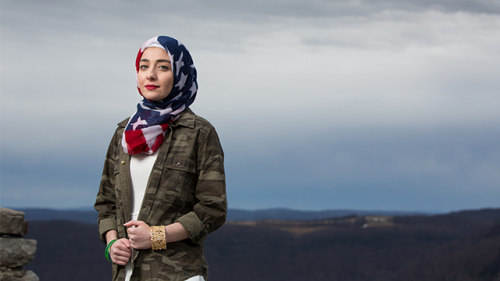Following the 2016 presidential election, voters left a trail of red from Alabama to Pennsylvania, including nine of the 19 states that make up Appalachia.
The national media dubbed the region “Trump Nation” as they searched to find the answers behind what many considered to be a surprise victory for Donald Trump.

But much like America, Appalachia is a melting pot of people representing a variety of social, economic and political perspectives.
In an effort to provide a more nuanced understanding of the region to a national audience, West Virginia University Reed College of Media, in partnership with West Virginia Public Broadcasting and The Daily Yonder, is launching the reporting project,”100 Days in Appalachia.”
The project is designed to burst the filter bubble of social news and to candidly narrate the first 100 days of the new Presidential administration from within the heart of our region.
“We’ll listen, and ask the world to listen with us, as people respond to cabinet picks, policies and promises made, said Dana Coester, project editor and creative director. “While we’re at it, we’ll do some soul searching on the role media plays at building, or eroding, peoples’ trust in journalism.”
The project will include a mix of content — news stories, multimedia features, opinion pieces — produced by faculty, professionals, and thought leaders from across the region. Students from several classes will be tasked with editing and curating stories in a social feed.
Dean Maryanne Reed says the project offers students a unique opportunity for to work alongside professionals in a real newsroom environment.
“This project will give students the in-demand skills they need to work in a digital newsroom,” Reed said. “Students will learn how to build an audience for compelling content across multiple media platforms. That’s something you don’t see in most traditional journalism classes.”
One item already on the storyboard is a piece that demonstrates how cultural identity and political identity are aligning in new and unexpected ways. The 360° series, “Muslim in Appalachia” will provide a window into what it means to navigate both Muslim and Appalachian identity, while challenging stereotypes of both.
“The voices you hear from this region are usually from very expected sources, they’re very routine,” said Dave Mistich, project managing editor and digital editor/coordinator for WVPB. “What we’re trying to do is reach people who can narrate the first 100 days that aren’t the expected voices.”
Subscribe to the “100 Days in Appalachia” mailing list and follow the project’s progress on Facebook and Twitter.

